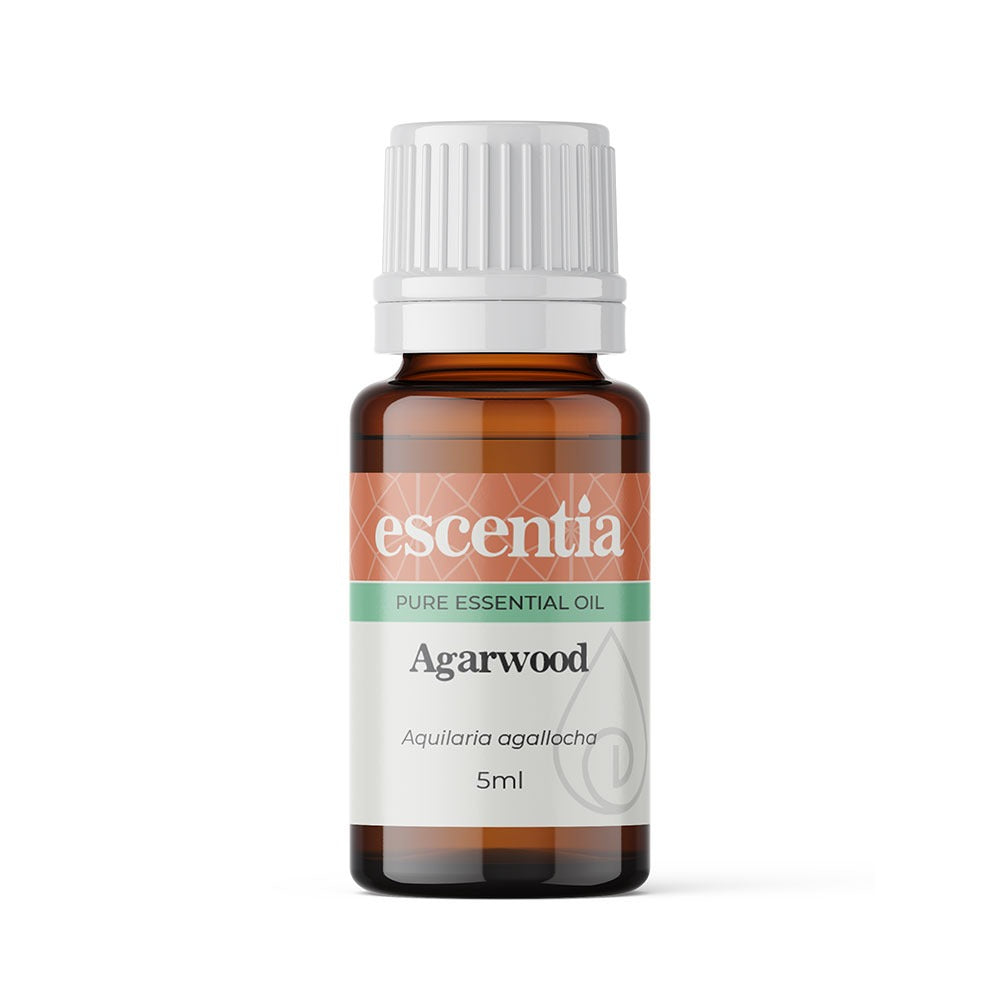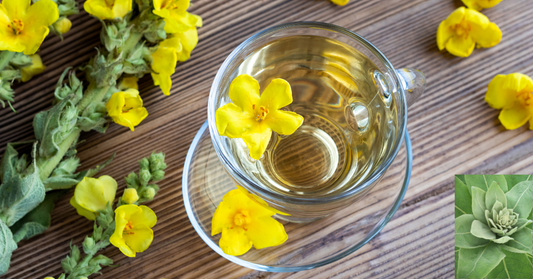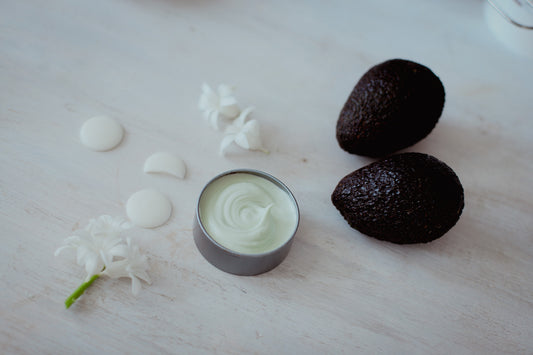Escentia Agarwood Essential Oil
Escentia Agarwood Essential Oil
Ships from us in 3-5 days.
Couldn't load pickup availability
Your Security, Our Priority
Your Security, Our Priority
Welcome to The Organic Station - A Trusted Name in Quality Products
At The Organic Station, your trust and security are our top priorities. We have proudly served our customers for over two years, providing a curated selection of natural and organic products that promote health and well-being.
Who We Are
The Organic Station is a division of Pens & Ports, a registered business with the Companies and Intellectual Property Commission (CIPC). Our registration details are as follows:
- Business Registered Name: Pens & Ports t/a Organic Station
- Registration Number: 2022/430055/07
- Enterprise Number: K2022430055
- CIPC Registration: © 2022-2024
These credentials reflect our commitment to operating transparently and adhering to all regulatory requirements.
Your Payment Security
We take your financial security seriously. That’s why we partner with Peach Payments and OZOW, leading payment gateways known for their robust security measures. When you make a purchase with us, your transaction and card details are protected with end-to-end encryption, ensuring that your sensitive information remains confidential. Rest assured, no card details are stored on our website.
Additionally, you can verify that our site is secure by checking for the HTTPS protocol in your browser’s address bar, signifying that all data exchanged between your browser and our site is encrypted.
Why Trust Us?
- Registered Business: We are a fully registered and compliant business, verified by CIPC.
- Secure Transactions: All payments are processed securely through Peach Payments and OZOW.
- Protected Data: We use the latest HTTPS encryption to protect your personal and financial information.
- Customer Satisfaction: We pride ourselves on providing excellent customer service and high-quality products.
Thank you for choosing The Organic Station. We look forward to serving you with the utmost care and dedication.
Payments Methods Accepted
Payments Methods Accepted
At The Organic Station, we offer several secure and convenient payment methods to ensure a smooth and safe checkout experience. Choose the option that best suits you:
1. Peach Payments
Peach Payments provides a seamless and secure gateway for online transactions. You can use your credit or debit card with ease, knowing that your information is protected through advanced encryption technology.
- Accepted Cards: Visa, MasterCard
- Fast and Secure: Payments are processed instantly.
- No Additional Fees: Enjoy a hassle-free checkout experience with no hidden charges.
2. Ozow
Ozow makes payments easy, secure, and instant by allowing you to pay directly from your bank account. It’s a fast, contactless payment method with no need for card details.
- Instant Payments: Transactions are completed in real time.
- No Registration Required: Pay directly via your online banking details without signing up.
- Secure and Trusted: Your bank details are not stored, ensuring maximum security.
Important Notes:
- Order Processing: Please note that no items will be reserved or shipped until payment has been received and verified.
- Security: We use trusted and secure payment gateways to ensure your payment details are fully protected at all times.
If you have any questions or experience any issues during payment, feel free to contact our customer support team at hello@organicstation.co.za for assistance.

Escentia Agarwood Essential Oil
Escentia Agarwood Pure Essential Oil has been used for anointing and in sacred oud oil blends. It has also been used in treatment of various skin ailments and for cirrhosis of the liver, as well as a diuretic. Agarwood said to demand a higher price than gold. It is used in Ayurvedic medicine as a treatment for neuro-muscular conditions, pleurisy, anemia, halitosis, impotence, blood impurities, urinary infections, indigestion, skin problems and bed wetting.
This precious wood and its oud oil have a deep spiritual history and significance, and they are mentioned in the oldest spiritual texts – the Sahih Muslim, the Charaka Samhita, the Torah, the Bhagavad Gita, the Sushruta Samhita, Islamic scriptures and the Gospel. It is said that Buddha described the burning fragrance of Agarwood as the “scent of Nirvana” (the state of attaining Divinity). Additionally, the string of 108 beads in Buddhism is made up of Agarwood. The Bible also mentions that Jesus Christ was scented with Aloeswood (Agarwood). It is also said that the Samurai warriors used Agarwood smoke to perfume their armor as a lucky charm before going into the battle, and the celebrated king of France, King Louis XIV, had his garments washed in a blend of water boiled with Agarwood and rose for lasting fragrance and energy.
Escentia Agarwood Pure Essential Oil has been used for anointing and in sacred oud oil blends. It has also been used in treatment of various skin ailments and for cirrhosis of the liver, as well as a diuretic. Agarwood said to demand a higher price than gold. It is used in Ayurvedic medicine as a treatment for neuro-muscular conditions, pleurisy, anemia, halitosis, impotence, blood impurities, urinary infections, indigestion, skin problems and bed wetting.
This precious wood and its oud oil have a deep spiritual history and significance, and they are mentioned in the oldest spiritual texts – the Sahih Muslim, the Charaka Samhita, the Torah, the Bhagavad Gita, the Sushruta Samhita, Islamic scriptures and the Gospel. It is said that Buddha described the burning fragrance of Agarwood as the “scent of Nirvana” (the state of attaining Divinity). Additionally, the string of 108 beads in Buddhism is made up of Agarwood. The Bible also mentions that Jesus Christ was scented with Aloeswood (Agarwood). It is also said that the Samurai warriors used Agarwood smoke to perfume their armor as a lucky charm before going into the battle, and the celebrated king of France, King Louis XIV, had his garments washed in a blend of water boiled with Agarwood and rose for lasting fragrance and energy.
Product Specifications: Agar is a limb of the Thymelaeaceae plant family and the most popular among the 15 species of this plant variety are Aquilaria agallocha, Aquilaria sinensis, Aquillaria crassna and Aquilaria malaccensis. The resinous fragrance is created when a parasite fungus, phialophora parasitica, infects the Agarwood tree. It is after the attack that the tree begins to naturally produce an aromatic resin deep within the heartwood. Until infection, the heartwood in the tree has no medicinal properties but once a fungal infection (phialophora parasitica) takes hold of the tree, the tree responds by producing a protective resin which saturates the heartwood and the roots. This resin is informally known as liquid gold. After many years the amount of resin that the tree has produced increases the density of the wood so much that when it is floated on water it sinks. The Japanese call Agarwood, jinkoh, ‘the wood that sinks.’
Agarwood has been used in Chinese medicine for abdominal pain and smallpox: Agarwood has been noted for its use as a complex ointment for smallpox and for various abdominal complaints. It has also been used as a liniment for the treatment of various skin diseases, and in the treatment of lung and stomach tumors. When used in aromatherapy, agarwood oil may help to treat anxiety, stress, depression and other nervous system disorders.
Agarwood is said to exhibit the following properties:
- Stimulant – quickens physiological function
- Tonic – strengthens the body
- Anti-inflammatory – reduces inflammation
- Aphrodisiac – increases sexual desire
- Analgesic – relieves pain
- Diuretic – stimulates the production of urine
- Anti-arthritic – combats arthritis
- Antimicrobial – kills or resists pathogenic microorganisms
- Carminative – settles the digestive system and relieves gas
- Febrifuge – combats fever
- Digestive – aids digestion of food
- Expectorant – loosens mucus in the respiratory tract and aids expulsion
- Muscle relaxant – eases tension in muscles
- Demulcent – protects mucous membranes and calms irritation
- Emmenagogue – stimulates menstrual flow
- Antipruritic – relieves or prevents itching
- Stomachic – digestive aid and tonic, improves appetite
Country of Origin:
Bangladesh
Agarwood essential oil can be used to:
Agarwood has been used in Chinese medicine for abdominal pain and smallpox: Agarwood has been noted for its use as a complex ointment for smallpox and for various abdominal complaints. It has also been used as a liniment for the treatment of various skin diseases, and in the treatment of lung and stomach tumors. When used in aromatherapy, agarwood oil may help to treat anxiety, stress, depression and other nervous system disorders.
Agarwood is said to exhibit the following properties:
- Stimulant – quickens physiological function
- Tonic – strengthens the body
- Anti-inflammatory – reduces inflammation
- Aphrodisiac – increases sexual desire
- Analgesic – relieves pain
- Diuretic – stimulates the production of urine
- Anti-arthritic – combats arthritis
- Antimicrobial – kills or resists pathogenic microorganisms
- Carminative – settles the digestive system and relieves gas
- Febrifuge – combats fever
- Digestive – aids digestion of food
- Expectorant – loosens mucus in the respiratory tract and aids expulsion
- Muscle relaxant – eases tension in muscles
- Demulcent – protects mucous membranes and calms irritation
- Emmenagogue – stimulates menstrual flow
- Antipruritic – relieves or prevents itching
- Stomachic – digestive aid and tonic, improves appetite
Technique of extraction method:
It takes 70kg of heartwood to produce a mere 20 ml of the essential oud oil, and it’s estimated that only 2% of wild ‘agar’ trees produce this resin. The wild crafted Agarwood undergoes several rounds of steam distillation which produces different grades of oud oil of varying strength. The most prominent chemical constituents of Agarwood oil are agarol (sesquiterpene), aquillochin (couinarinolignan), α- agarofurans, β- agarofurans, agarospirol, jinkohol, jinkohol-eremol, selinene, iso- dihydroagarofuran, kusenol, and dihydroagarofuran.
Caution:
May affect sensitive skin. Keep out of reach of children. If you are pregnant, nursing, or under a doctor’s care, consult your physician. Avoid contact with eyes, inner ears, and sensitive areas.
Let customers speak for us
from 248 reviewsI use this as a mixture for my toddlers detox bath. I love your products I will stock up all my detox bath ingredients from your store. great product quality

Wonderful, love the product. Fresh and added to hot water it tastes like vegetable soup. Superb quality and the packaging is airtight and easy to travel with 👌

Good service and delivery earlier than expected
Thank you

Great product, great price.

A website that's a delight to navigate, cheerful and helpful response from the team at Organic Station, snappy delivery, and brilliant product. Not much I can add except 'uncomplicated'. Thank you!

It was well packaged and they were still in good state

I am pleased with my products and the great online services.

Best quality ever.. Thank you for such an amazing product

Good product. Works very well and the best thing is it's natural. I had no problem with their delivery. Great thing is you can track your order. You will see me soon.

I love the peppermint oil. And the spiders invading my home hate it.
Win win situation

Handy but we are used to ones with pipettes.

I have no idea how I survived without this spatula spoon, it makes my work so much easier (cosmetic formulating). Excellent product

These Chinese cabbage seeds started germinating after two days and were ready to be harvested after 6 days. Absolutely amazing and delicious!


Blog posts
View all-

Discover the Health Benefits of Mullein Leaves
Mullein leaves have been cherished for centuries for their remarkable health benefits. These soft, velvety leaves, derived from the Mullein plant (Verbascum thapsus), offer a range of wellness properties that...
Discover the Health Benefits of Mullein Leaves
Mullein leaves have been cherished for centuries for their remarkable health benefits. These soft, velvety leaves, derived from the Mullein plant (Verbascum thapsus), offer a range of wellness properties that...
-

Understanding Avocado Butter and Shea Butter: U...
Today, we're diving into the world of natural skincare with a focus on avocado butter and shea butter. These two ingredients are beloved for their moisturizing properties, but understanding the...
Understanding Avocado Butter and Shea Butter: U...
Today, we're diving into the world of natural skincare with a focus on avocado butter and shea butter. These two ingredients are beloved for their moisturizing properties, but understanding the...
-

The Benefits of Dried Spearmint: A Must-Have fo...
Today, we're exploring the refreshing world of dried spearmint, focusing on its impressive health benefits, uses in aromatherapy, and its delightful incorporation in teas. This versatile herb is a powerhouse...
The Benefits of Dried Spearmint: A Must-Have fo...
Today, we're exploring the refreshing world of dried spearmint, focusing on its impressive health benefits, uses in aromatherapy, and its delightful incorporation in teas. This versatile herb is a powerhouse...
- Choosing a selection results in a full page refresh.
- Opens in a new window.





